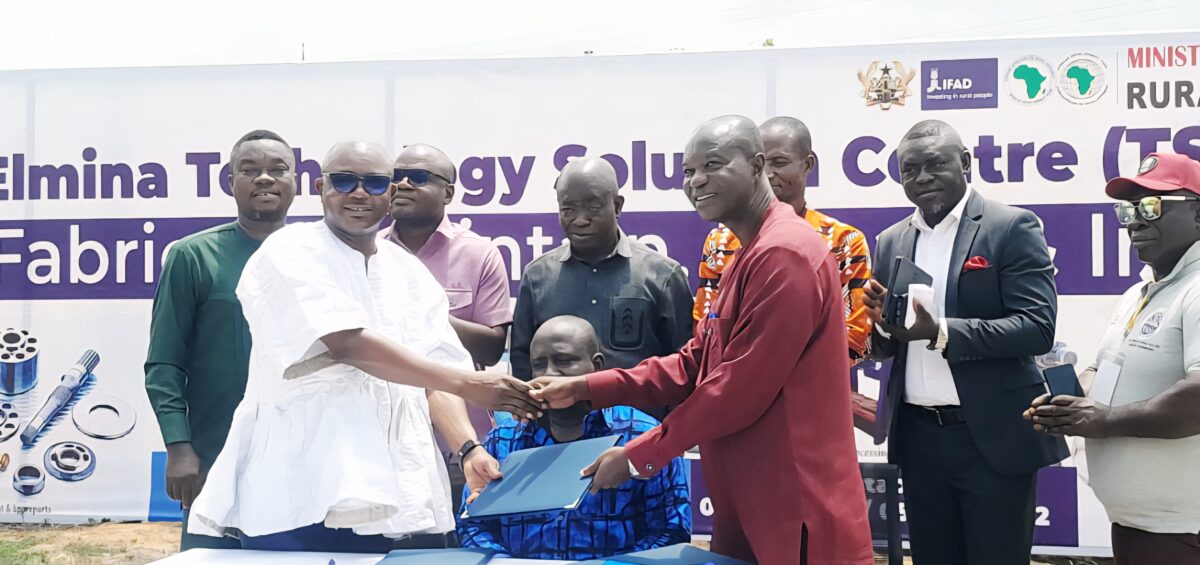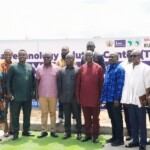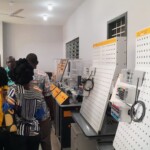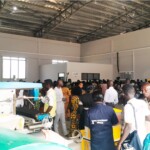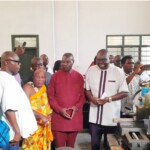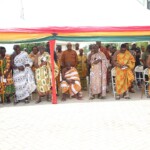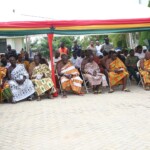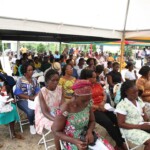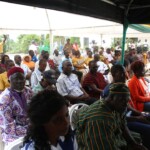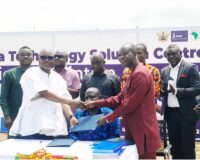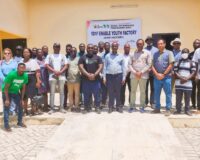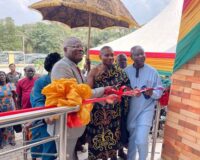In a significant step toward sustaining Ghana’s rural industrialisation efforts, the Rural Enterprises Programme (REP), under the Ministry of Trade, Agribusiness and Industry, has officially handed over the management of 31 fully equipped Technology Solution Centres (TSCs) to the GRATIS Foundation.
These Centres—established over nearly 30 years—are designed to support MSMEs and artisans with agro-processing equipment, technical training, machinery fabrication, and engineering services to power grassroots industrial growth and job creation.
 At the official ceremony in Elmina, Deputy Minister of Trade, Agribusiness and Industry, Samson Ahi, delivering a speech on behalf of the Sector, Mrs Minister Elizabeth Ofosu-Adjare, described the handover as a vital move to secure the future of Ghana’s industrial and agricultural economy. “These Centres are critical infrastructure that will help reduce Ghana’s dependence on imported machinery, provide continuous engineering support, and help drive our 24-hour economy,” the Minister noted.
At the official ceremony in Elmina, Deputy Minister of Trade, Agribusiness and Industry, Samson Ahi, delivering a speech on behalf of the Sector, Mrs Minister Elizabeth Ofosu-Adjare, described the handover as a vital move to secure the future of Ghana’s industrial and agricultural economy. “These Centres are critical infrastructure that will help reduce Ghana’s dependence on imported machinery, provide continuous engineering support, and help drive our 24-hour economy,” the Minister noted.
She also emphasized that the facilities would scale up human capital development through vocational training and skills transformation initiatives.
The Minister expressed gratitude to development partners, especially the International Fund for Agricultural Development (IFAD) and the African Development Bank (AfDB), for their continued support of the REP. She added that the Centres will directly contribute to lower production costs, enhanced value chains, and wider access to job-creating tools and services.
The National Director of REP, Kwasi Attah-Antwi, reflected on the historic significance of the handover. “Today marks the culmination of nearly three decades of planning, investment, and collaboration,” he said. He noted that the TSCs—formerly known as Rural Technology Facilities (RTFs)—are one of REP’s most visible legacies, embedded in 31 districts nationwide and designed in collaboration with District Assemblies and the GRATIS Foundation.
 Mr. Attah-Antwi provided a breakdown of how the TSCs were established across REP’s phases:
Mr. Attah-Antwi provided a breakdown of how the TSCs were established across REP’s phases:
- 3 Centres from Phase I (1995–2002)
- 18 Centres from Phase II (2003–2012)
- 5 Centres adopted from other initiatives
- 5 new, high-capacity Centres under the current Programme phase.
He emphasized the national coverage of these Centres and REP’s recent efforts to retool and modernise them, including infrastructure upgrades and equipment renewal to align with current industry needs. “This handover ensures our interventions are sustained within strong, permanent institutions,” he stated.
Importantly, he announced ongoing support for the GRATIS Foundation itself under REP, including the refurbishment of its Head Office, retooling of its engineering workshop with a modern CNC machine, and the creation of a Knowledge Centre to reposition GRATIS as a future-ready institution.
Mr. Attah-Antwi offered heartfelt thanks to all funding partners of REP — IFAD and AfDB; and other key stakeholders such as the Trades Ministry which is the supervising Ministry for REP, District Assemblies, and the GRATIS Foundation—and saluted the REP team. “Let us continue building a Ghana where skills, enterprise, and technology uplift lives and drive lasting change,” he concluded.
The CEO of GRATIS Foundation, Dr. Isaac Adaebsah, pledged to honour the legacy REP has built. “These Centres will become hubs of opportunity—engaging youth, supporting MSMEs, and serving as pillars for the 24-hour economy and national apprenticeship programme,” he said.
Central Regional Minister, Mr. Ekow Panyin Okyere Eduamoah, called for inclusivity in technical training, stressing that opportunities at the Centres must remain accessible to all, regardless of academic background. He also proposed that machines be made available to rural farmers and processors on credit.
The ceremony featured an exhibition of locally made machinery, showcasing Ghana’s ingenuity—from fibre extractors to cassava graters and palm oil presses—signalling the promise the TSCs hold for transforming rural economies.


